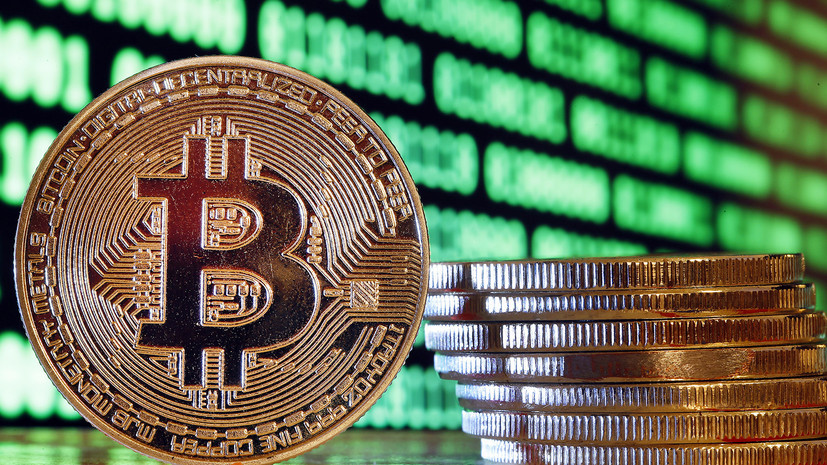InstaForex Gertrude
Active member
US stock market closes higher, Dow Jones gains 1.01%
At the close on the New York Stock Exchange, the Dow Jones rose 1.01%, the S&P 500 index rose 1.12%, the NASDAQ Composite index rose 2.03%.
The leading gainer among the components of the Dow Jones index today was Boeing Co, which gained 6.59 points or 3.74% to close at 182.87. Walmart Inc rose 3.99 points or 2.60% to close at 157.22. American Express Company rose 4.05 points or 2.31% to close at 179.59.
The biggest losers were JPMorgan Chase & Co, which shed 4.24 points or 3.22% to end the session at 127.30. The Travelers Companies Inc rose 1.23 points (0.67%) to close at 183.71, while 3M Company gained 0.08 points (0.05%) to close at 148. .66. Leading gainers among the S&P 500 index components in today's trading were American Airlines Group, which rose 10.62% to 18.95, Gap Inc, which gained 8.23% to close at 14.46, and shares of Host Hotels & Resorts Inc, which rose 8.12% to end the session at 19.70.
The biggest losers were AbbVie Inc, which shed 4.19% to close at 158.95. PayPal Holdings Inc fell 2.85% to 105.17.
Leading gainers among the components of the NASDAQ Composite in today's trading were Kaleido Biosciences Inc, which rose 75.06% to hit 0.30, Antares Pharma Inc, which gained 49.20% to close at 5.58, and also shares of Veru Inc, which rose 42.86% to close the session at 14.30.
The drop leaders were NanoString Technologies Inc, which shed 33.63% to close at 21.87. Shares of Polarityte Inc lost 30.84% and ended the session at 0.27. Quotes Crown Electrokinetics Corp. decreased in price by 19.63% to 1.31.
On the New York Stock Exchange, the number of securities that rose in price (2463) exceeded the number of those that closed in the red (778), while quotes of 110 shares remained practically unchanged. On the NASDAQ stock exchange, 2,913 companies rose in price, 955 fell, and 226 remained at the level of the previous close.
Shares of Antares Pharma Inc surged to a high of 49.20% or 1.84 points to close at 5.58. Veru Inc surged to a 52-week high, up 42.86% or 4.29 points to close at 14.30.
The CBOE Volatility Index, which is based on S&P 500 options trading, fell 10.06% to 21.82.
Gold futures for June delivery added 0.10%, or 1.90, to $1.00 a troy ounce. In other commodities, WTI crude for May delivery rose 3.72%, or 3.74, to $104.34 a barrel. Futures for Brent crude for June delivery rose 4.09%, or 4.28, to $108.92 a barrel.
Meanwhile, on the Forex market, EUR/USD rose 0.58% to hit 1.09, while USD/JPY edged up 0.24% to hit 125.64.
Futures on the USD index fell 0.39% to 99.90.
News are provided by InstaForex
At the close on the New York Stock Exchange, the Dow Jones rose 1.01%, the S&P 500 index rose 1.12%, the NASDAQ Composite index rose 2.03%.
The leading gainer among the components of the Dow Jones index today was Boeing Co, which gained 6.59 points or 3.74% to close at 182.87. Walmart Inc rose 3.99 points or 2.60% to close at 157.22. American Express Company rose 4.05 points or 2.31% to close at 179.59.
The biggest losers were JPMorgan Chase & Co, which shed 4.24 points or 3.22% to end the session at 127.30. The Travelers Companies Inc rose 1.23 points (0.67%) to close at 183.71, while 3M Company gained 0.08 points (0.05%) to close at 148. .66. Leading gainers among the S&P 500 index components in today's trading were American Airlines Group, which rose 10.62% to 18.95, Gap Inc, which gained 8.23% to close at 14.46, and shares of Host Hotels & Resorts Inc, which rose 8.12% to end the session at 19.70.
The biggest losers were AbbVie Inc, which shed 4.19% to close at 158.95. PayPal Holdings Inc fell 2.85% to 105.17.
Leading gainers among the components of the NASDAQ Composite in today's trading were Kaleido Biosciences Inc, which rose 75.06% to hit 0.30, Antares Pharma Inc, which gained 49.20% to close at 5.58, and also shares of Veru Inc, which rose 42.86% to close the session at 14.30.
The drop leaders were NanoString Technologies Inc, which shed 33.63% to close at 21.87. Shares of Polarityte Inc lost 30.84% and ended the session at 0.27. Quotes Crown Electrokinetics Corp. decreased in price by 19.63% to 1.31.
On the New York Stock Exchange, the number of securities that rose in price (2463) exceeded the number of those that closed in the red (778), while quotes of 110 shares remained practically unchanged. On the NASDAQ stock exchange, 2,913 companies rose in price, 955 fell, and 226 remained at the level of the previous close.
Shares of Antares Pharma Inc surged to a high of 49.20% or 1.84 points to close at 5.58. Veru Inc surged to a 52-week high, up 42.86% or 4.29 points to close at 14.30.
The CBOE Volatility Index, which is based on S&P 500 options trading, fell 10.06% to 21.82.
Gold futures for June delivery added 0.10%, or 1.90, to $1.00 a troy ounce. In other commodities, WTI crude for May delivery rose 3.72%, or 3.74, to $104.34 a barrel. Futures for Brent crude for June delivery rose 4.09%, or 4.28, to $108.92 a barrel.
Meanwhile, on the Forex market, EUR/USD rose 0.58% to hit 1.09, while USD/JPY edged up 0.24% to hit 125.64.
Futures on the USD index fell 0.39% to 99.90.
News are provided by InstaForex

